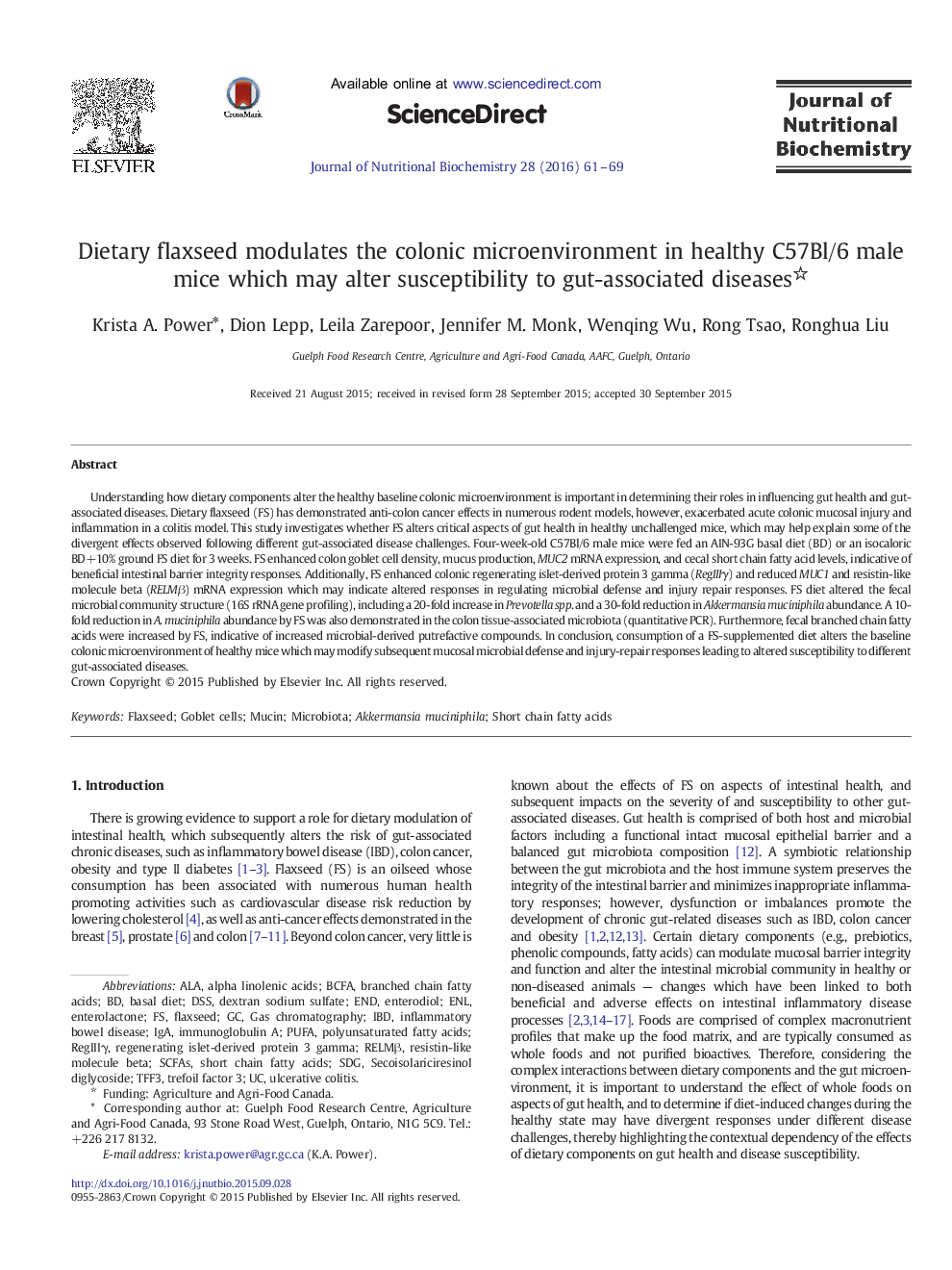| کد مقاله | کد نشریه | سال انتشار | مقاله انگلیسی | نسخه تمام متن |
|---|---|---|---|---|
| 1989601 | 1540640 | 2016 | 9 صفحه PDF | دانلود رایگان |

Understanding how dietary components alter the healthy baseline colonic microenvironment is important in determining their roles in influencing gut health and gut-associated diseases. Dietary flaxseed (FS) has demonstrated anti-colon cancer effects in numerous rodent models, however, exacerbated acute colonic mucosal injury and inflammation in a colitis model. This study investigates whether FS alters critical aspects of gut health in healthy unchallenged mice, which may help explain some of the divergent effects observed following different gut-associated disease challenges. Four-week-old C57Bl/6 male mice were fed an AIN-93G basal diet (BD) or an isocaloric BD+10% ground FS diet for 3 weeks. FS enhanced colon goblet cell density, mucus production, MUC2 mRNA expression, and cecal short chain fatty acid levels, indicative of beneficial intestinal barrier integrity responses. Additionally, FS enhanced colonic regenerating islet-derived protein 3 gamma (RegIIIγ) and reduced MUC1 and resistin-like molecule beta (RELMβ) mRNA expression which may indicate altered responses in regulating microbial defense and injury repair responses. FS diet altered the fecal microbial community structure (16S rRNA gene profiling), including a 20-fold increase in Prevotella spp. and a 30-fold reduction in Akkermansia muciniphila abundance. A 10-fold reduction in A. muciniphila abundance by FS was also demonstrated in the colon tissue-associated microbiota (quantitative PCR). Furthermore, fecal branched chain fatty acids were increased by FS, indicative of increased microbial-derived putrefactive compounds. In conclusion, consumption of a FS-supplemented diet alters the baseline colonic microenvironment of healthy mice which may modify subsequent mucosal microbial defense and injury-repair responses leading to altered susceptibility to different gut-associated diseases.
Journal: The Journal of Nutritional Biochemistry - Volume 28, February 2016, Pages 61–69